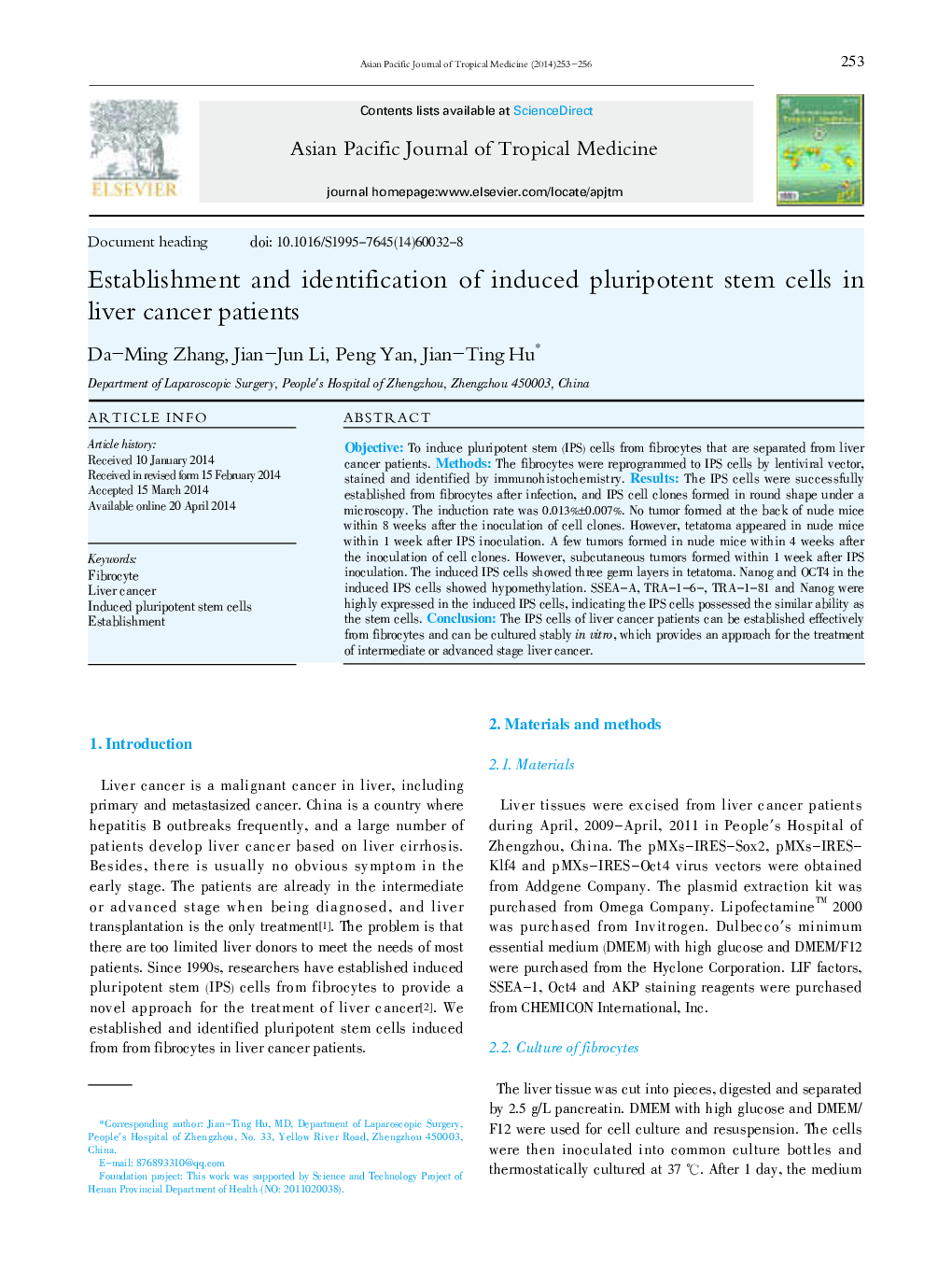| Article ID | Journal | Published Year | Pages | File Type |
|---|---|---|---|---|
| 3455676 | Asian Pacific Journal of Tropical Medicine | 2014 | 4 Pages |
ObjectiveTo induce pluripotent stem (IPS) cells from fibrocytes that are separated from liver cancer patients.MethodsThe fibrocytes were reprogrammed to IPS cells by lentiviral vector, stained and identified by immunohistochemistry.ResultsThe IPS cells were successfully established from fibrocytes after infection, and IPS cell clones formed in round shape under a microscopy. The induction rate was 0.013%±0.007%. No tumor formed at the back of nude mice within 8 weeks after the inoculation of cell clones. However, tetatoma appeared in nude mice within 1 week after IPS inoculation. A few tumors formed in nude mice within 4 weeks after the inoculation of cell clones. However, subcutaneous tumors formed within 1 week after IPS inoculation. The induced IPS cells showed three germ layers in tetatoma. Nanog and OCT4 in the induced IPS cells showed hypomethylation. SSEA-A, TRA-1-6-, TRA-1-81 and Nanog were highly expressed in the induced IPS cells, indicating the IPS cells possessed the similar ability as the stem cells.ConclusionsThe IPS cells of liver cancer patients can be established effectively from fibrocytes and can be cultured stably in vitro, which provides an approach for the treatment of intermediate or advanced stage liver cancer.
